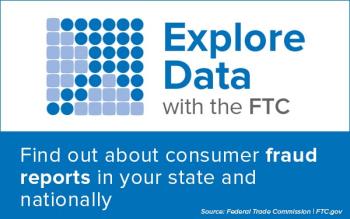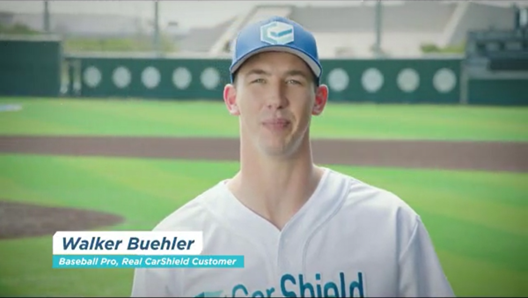
NRRM, LLC, which does business as CarShield, along with American Auto Shield, LLC (AAS), the administrator of its vehicle service contracts (VSCs), will pay $10 million to settle Federal Trade Commission charges that its advertisements and telemarketing for VSC are deceptive and misleading, and that many purchasers found that many repairs were not “covered,” despite making payments of up to $120 per month. The FTC also alleges CarShield’s celebrity and consumer endorsers made false statements in its ads.
The stipulated order settling the Commission’s complaint also bars CarShield and AAS from making deceptive and misleading statements in the future and requires them to ensure their endorsers’ testimonials are truthful, accurate, and not deceptive.
“For many consumers, a personal vehicle is one of their most valuable assets and a vital lifeline for getting to work, taking their kids to school, and obtaining medical care. Instead of delivering the ‘peace of mind’ promised by its advertisements, CarShield left many consumers with a financial headache,” said Samuel Levine, Director of the FTC’s Bureau of Consumer Protection. “Worse still, CarShield used trusted personalities to deliver its empty promises. The FTC will hold advertisers accountable for using false or deceptive claims to exploit consumers’ financial anxieties.”
NRRM is a Missouri-based company that advertises VSCs to consumers throughout the United Sates. AAS, based in Lakewood, Colorado, designs and administers the VSCs.
According to the FTC’s complaint, CarShield advertises and sells VSCs costing approximately $80 to $120 a month. CarShield’s ads for VSCs often feature celebrities such as sports commentator Chris Berman and actor Ice-T. These endorsers try to assure consumers that buying a CarShield service plan will provide them with “peace of mind” and “protection” from the cost and inconvenience of vehicle breakdowns, which will inevitably occur.
The complaint alleges many ads claim that all repairs or repairs to “covered” systems, such as the engine and transmission, will be covered and use language that makes consumers believe CarShield will pay for all necessary repairs. For example, one ad that ran 18,000 times on television stated, “With CarShield’s administrators, they make sure you don’t get stuck with expensive car repair bills like this.” It also touts CarShield VSCs as “your best line of defense against expensive breakdowns.”
CarShield celebrity endorser commercial
The company sells its plans using telemarketers who answer inbound calls and make outbound calls responding to consumers, including those who made web inquiries. Using scripted statements written by CarShield and cleared by AAS, the telemarketers pitch the VSCs and tell consumers that, whether they use a dealer or local mechanic for the repair work, “there is just a $100 deductible for any covered repair.”
However, consumers do not always get what they think they bought when signing up for the VSCs. Instead, the complaint alleges that CarShield’s ads deceptively represent that: 1) all repairs or repairs to “covered” vehicle systems will be paid for under the plans; 2) consumers will receive a rental car at no cost when their car breaks down; and 3) consumers can use the repair facility of their choice for repairs.
Specifically, many consumers could not use the repair facility of their choice, as many do not accept the VSCs. Many consumers also find that repairs they thought were covered are not. In fact, none of CarShield’s VSCs covers all repairs or even repairs to “covered” vehicle systems. Instead, the plans contain myriad exclusions. Consumers with denied claims receive no rental car, while many consumers with “approved” claims must pay a portion of their rental car costs.
In addition, while CarShield’s celebrity endorsers said they had signed up and used the company’s VSCs, in many cases this was not true. They were not “real” customers and had never saved money by using an AAS VSC. Finally, many CarShield ads deceptively feature consumer endorsers who claim to have saved a specific amount of money using their plans but have not in fact saved that amount.
The proposed order settling the complaint addresses the defendants’ alleged violations of the FTC Act. First, it prohibits CarShield from making the misrepresentations described in the complaint, along with any other misrepresentations related to any good or service. It also prohibits CarShield and AAS from failing to make required disclosures and from violating the FTC’s Telemarketing Sales Rule.
Next, the order bars CarShield from misrepresenting any endorser’s ownership, use of, or experience with any product or service and requires AAS to inform third-party marketers of the order and to review and monitor their advertising and marketing. The order also imposes standard reporting and compliance provision that will remain in place for up to 10 years.
Finally, the order imposes a $10 million monetary judgment against CarShield and AAS, which will be used to provide refunds to defrauded consumers. The full amount of the judgment must be paid to the FTC within seven days of when the court enters the order.
The Commission vote authorizing the staff to file the complaint and proposed order was 5-0. FTC staff filed the complaint and proposed order in U.S. District Court for the Eastern District of Missouri. The case was brought by the agency’s East Central Region. The FTC thanks the Missouri Attorney General’s Office for its help in bringing this case.
The staff attorneys on this case are Matthew Scheff, Adrienne Jenkins, and Sammi Nachtigal.
NOTE: The Commission files a complaint when it has “reason to believe” that the named defendants are violating or are about to violate the law and it appears to the Commission that a proceeding is in the public interest. Stipulated final injunctions/orders have the force of law when approved and signed by the District Court judge.
The Federal Trade Commission works to promote competition and protect and educate consumers. The FTC will never demand money, make threats, tell you to transfer money, or promise you a prize. Learn more about consumer topics at consumer.ftc.gov, or report fraud, scams, and bad business practices at ReportFraud.ftc.gov. Follow the FTC on social media, read consumer alerts and the business blog, and sign up to get the latest FTC news and alerts.

